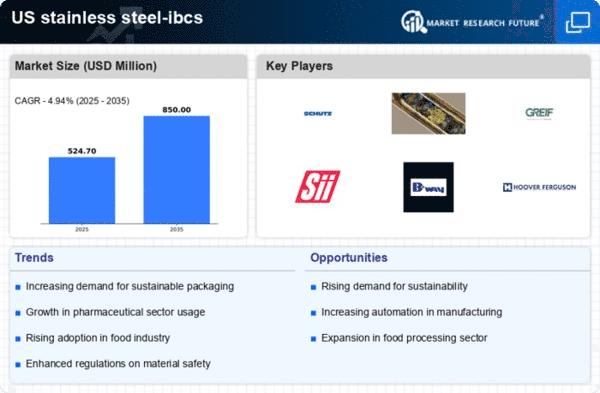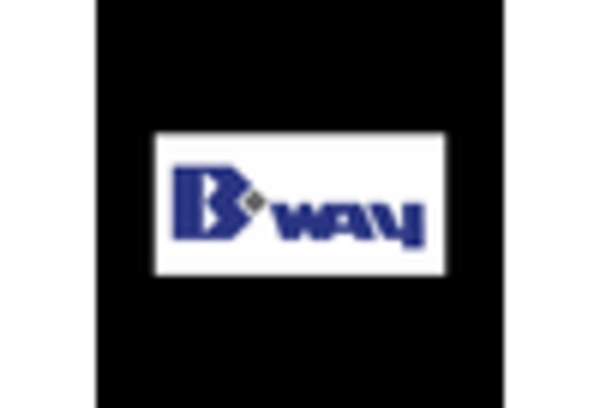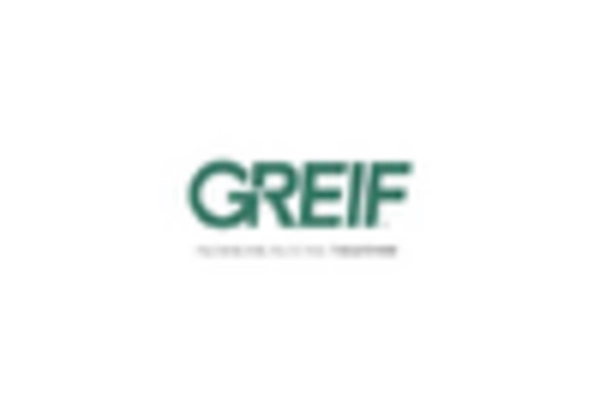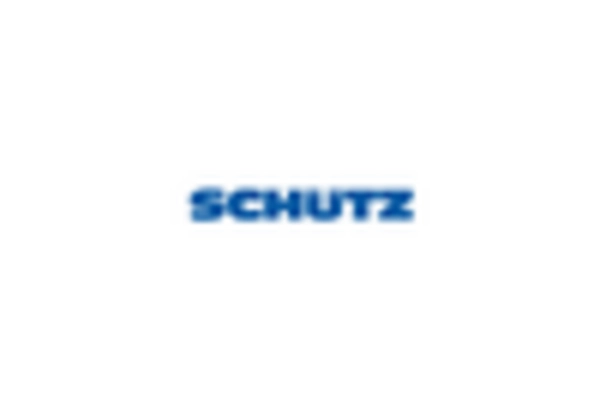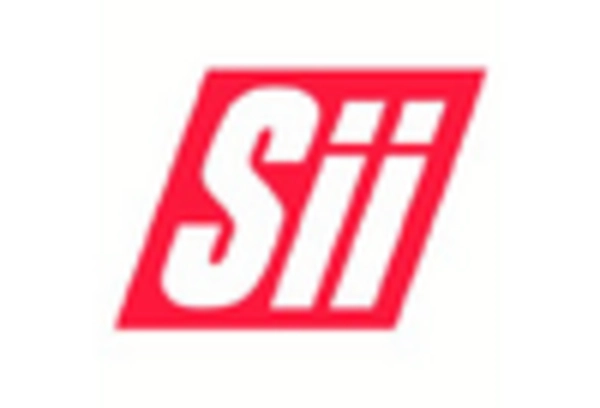Rising Demand for Chemical Storage
The increasing need for safe and efficient storage solutions in the chemical industry is driving the stainless steel-ibcs market. As regulations tighten around chemical handling and storage, companies are seeking durable and compliant options. Stainless steel ibcs offer superior resistance to corrosion and contamination, making them ideal for hazardous materials. The chemical sector in the US is projected to grow at a CAGR of 3.5% from 2025 to 2030, further boosting the demand for stainless steel ibcs. This growth is likely to be fueled by the expansion of the petrochemical and specialty chemicals markets, which require robust storage solutions. Consequently, the stainless steel-ibcs market is positioned to benefit from this trend, as manufacturers adapt to meet the evolving needs of the chemical industry.
Expansion of E-commerce and Logistics
The rapid expansion of e-commerce in the US is creating new opportunities for the stainless steel-ibcs market. As online retail continues to grow, logistics and supply chain efficiency become paramount. Stainless steel ibcs are increasingly being utilized for bulk storage and transportation of goods, particularly in industries such as food, chemicals, and pharmaceuticals. The logistics sector is projected to grow by 6% annually, driven by the need for faster and more reliable delivery systems. This growth is likely to enhance the demand for stainless steel ibcs, as companies seek to optimize their storage solutions for e-commerce operations. The stainless steel-ibcs market stands to benefit from this trend, as it aligns with the broader shifts in consumer behavior and supply chain management.
Growth in Pharmaceutical Manufacturing
The pharmaceutical sector in the US is experiencing robust growth, which is significantly influencing the stainless steel-ibcs market. With the increasing production of biopharmaceuticals and vaccines, there is a heightened demand for reliable storage solutions that maintain product integrity. Stainless steel ibcs are particularly advantageous due to their ability to withstand extreme temperatures and maintain sterility. The pharmaceutical industry is projected to expand at a CAGR of 5% through 2030, driven by innovations in drug development and an aging population. This growth is likely to create a substantial opportunity for stainless steel ibcs, as manufacturers seek to optimize their storage and transportation processes. The stainless steel-ibcs market is thus expected to thrive in tandem with the pharmaceutical industry's expansion, highlighting the critical role of quality storage solutions.
Increased Focus on Food Safety Standards
Food safety regulations in the US are becoming increasingly stringent, which is positively impacting the stainless steel-ibcs market. The food and beverage industry is under constant scrutiny to ensure that products are stored and transported in a manner that prevents contamination. Stainless steel ibcs are favored for their hygienic properties and ease of cleaning, making them suitable for food-grade applications. The market for food storage solutions is expected to grow by approximately 4% annually, driven by consumer demand for safe and high-quality food products. As food manufacturers seek to comply with these regulations, the adoption of stainless steel ibcs is likely to rise, thereby enhancing the market's growth prospects. This trend underscores the importance of quality and safety in food storage, positioning stainless steel ibcs as a preferred choice.
Technological Innovations in Manufacturing
Advancements in manufacturing technologies are reshaping the stainless steel-ibcs market. Innovations such as automated production processes and improved welding techniques are enhancing the quality and efficiency of ibc production. These technological improvements not only reduce production costs but also increase the durability and performance of stainless steel ibcs. As manufacturers adopt these technologies, the market is likely to see a rise in the availability of high-quality products that meet diverse customer needs. Furthermore, the integration of smart technologies, such as IoT-enabled monitoring systems, is expected to gain traction, providing users with real-time data on storage conditions. This trend indicates a shift towards more sophisticated storage solutions, positioning the stainless steel-ibcs market for growth as it adapts to the evolving demands of various industries.


